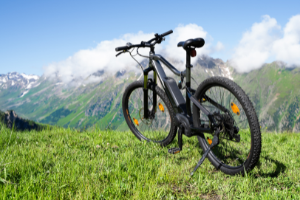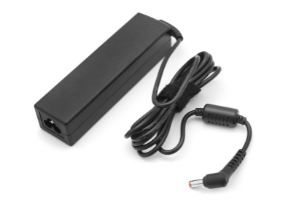Off-Grid E-Bike Charging18 August 2022 | Paul
Electric Bikes, like electric cars, have grown in popularity over the past few years and we have been contacted by many customers looking to pack up their e-bike and use it to explore the areas they travel to. Keeping your e-bike charged when off-grid, however, can be a puzzle with the varying voltages at play, so let's try and break it down and look at a typical e-bike system you might come across. Battery An electrical bike battery is typically a 24V lithium-ion battery, e.g. 24V 10Ah/240Wh. Charger A typical e-bike charger will produce a charging voltage of 36V DC when plugged into the 240V AC 3-pin socket at home, using an internal rectifier to convert the voltage from AC to DC. The current may change depending on the make and model as well as the capacity of the battery being charged. If you already have a campervan, motorhome etc. that you use to carry your bike around in, your first thought might be 'why not charge my e-bike battery directly from the leisure battery?'.
Using the mains charger supplied with the e-bike is the safest way to deliver a charge to the battery without causing damage, so you'll need a 240V AC supply & a 3-pin socket. An inverter can be attached to a 12V/24V battery to provide you with an off-grid 240V AC supply and will allow you to charge the e-bike battery safely. So, how do we decide which inverter to use? Well, you will need to look at the power input requirements of the e-bike charger (in Watts) and then select an inverter that can provide sufficient power. You can learn more about this topic in our video which you can watch here. You can pick a suitable inverter from our selection here and, once connected to your leisure batteries, you'll be ready to charge. Now, as we are powering the inverter from your leisure battery we also need to be aware of the leisure battery capacity and ensure that it doesn't become over-discharged. Let's have a look at a typical set-up and we will use the following as an example: 1 x TN Power Lithium 100Ah battery So we know that we need an inverter with a 100W power output as an absolute minimum, so let's go with a Victron Pure Sine Wave 250VA which will easily provide the 100W, plus a bit extra to prevent the inverter having to continuously work hard at its maximum capacity. We also know that the efficiency of this particular inverter is 87%, meaning there is a 13% power loss during the transformation from DC to AC voltage. Assuming 100% efficiency, the inverter would need to draw 8.33A (100W/12V = 8.33A) from the battery to supply the e-bike charger. However, the 87% efficiency means that the actual current draw from the battery will be around 9.58A (8.33A/0.87=9.58A). So, for every hour we run the e-bike charger, approximately 9.58Ah of capacity will be used from the leisure battery. Next, we know that our e-bike charger is producing 2.5A to charge the 10Ah capacity battery so, assuming a fully discharged battery, it would take around 4hrs to complete a full re-charge. This means that the leisure battery is supplying 9.58A to the inverter for 4hrs, totalling around 38.3Ah of capacity depleted of the 100Ah potentially available. If we have a solar panel and controller, or a DC-DC charger to charge the leisure battery from the alternator, then we can replenish this charge over time, depending on the set-up we have. We hope this article has been helpful for anyone looking to use e-bikes in their leisure vehicle & if you have any questions please contact our team who would be happy to help.
|
|
12 Volt PlanetAuto & Marine Electrical Components |










